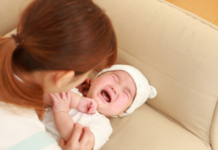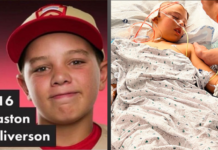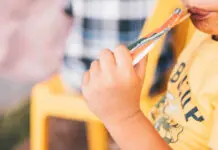On one of my favorite mom blog discussion boards, a fellow member spoke openly about her frustrations with her 7-year-old son constantly pooping his pants – even while at school. Despite their best efforts, she has been unable to break her son of this less than pleasant habit.
I had a similar experience with one of my own school-aged sons – who shall remain nameless. For a period of more than two years, he constantly pooped his pants and then tried to hide the “evidence”. I’d walk into his bedroom and instantly smell something hideous. Somewhere lingering in a drawer, behind a bureau or tucked behind boxes in his closet, I knew there was a pair of underwear with days-old poop stuck to them. To make matters worse, my son would also hold his poop causing ongoing problems with constipation.
We tried many tactics – from talking opening with him and trying to reassure him that it was okay to have an occasional accident, but it was not okay trying to hide it to scolding (not appropriate in this situation, but we were desperate) and taking away special privileges – but nothing worked. We did seek the help of his pediatrician, who prescribed mineral oil daily and Miralax as needed. This helped with the constipation end of things, but not with the accidents.
After constantly having to buy new underwear and bombarded with accident after accident, I, as a mother, couldn’t take it anymore. I finally broke down and set up an appointment with a local child psychologist. It was the best decision I ever made with respect to this situation. The psychologist came up with a game plan that literally saved our lives.
As I mentioned to this mom on the discussion forum, the best advice we were given was to accept that it was a phase our son was going through and, like the poop itself, understand the phase would pass. We needed to hang in there and do the best we could as parents.
Beyond that our strategy was twofold – we used a rewards system and also made our son take responsibility for his actions. The first step was to buy all white underwear – seven pairs, one pair for each day of the week. Inside the waistband with a permanent black marker, we were instructed to write the day of the week (Saturday, Sunday, Monday and so on). For each day that our son did not poop in his pants, he received a reward. The other part of this tactic was to create a rewards board with certain special treats or activities listed under each day of the week. On days he did not poop his pants, he was allowed to choose a reward.
The second part of our strategy was to have our son take responsibility for pooping in his pants when he clearly understood (which he did) that it was not okay. When he had an accident, we were advised not to buy new underwear, but to clean the soiled ones and to have our son take the lead in this process. For obvious reasons, we bought two sets of rubber gloves – one pair for us and one for him. Together, his soiled underpants were scrubbed and cleaned before being placed in the washer. We would not throw them out and reward him with new pairs (unless absolutely necessary). He was made to take responsibility for his actions (even at a young age). This second part of the strategy had to be done in a manner that was safe, did not make him feel embarrassed or ashamed and was not scary in any way. By us having a pair of gloves and helping him to clean his accidents up, we showed our support in a safe and open environment.
My son was not diagnosed with encopresis or any related health concerns. He self-admittedly told us time and time again he did not want to stop playing or come in from outside to use the bathroom. So these tricks worked wonders for us and our particular situation! I highly recommend them if you are experiencing ongoing issues with your school-aged child pooping his or her pants. Of course, always consult with a pediatrician first. There could be underlying health issues at play – you just never know.
It’s difficult, but absolutely necessary to remain level-headed and have patience. Your child needs your support in tough situations. Good luck!





















